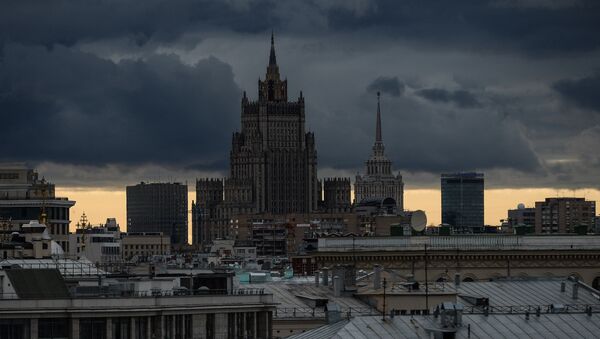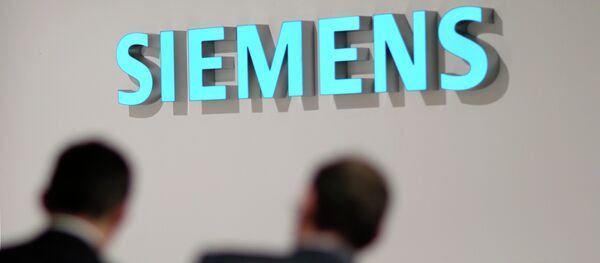"We consider the reasons behind the adoption of new restrictive measures toward our country [Russia] as absolutely unsubstantiated and reserve the right to rateliate," the Foreign Ministry said.
The Russian Foreign Ministry said that Moscow considers the EU and the German government as those responsible for the decision of the sanctions' extension, adding that Russia regrets that such an unfriendly step toward the country has been taken.
"Brussels' decision to add several Russian officials and companies to the EU sanctions list as a response measure to an alleged 'illegitimate' supply Siemens concern's gas turbines to Crimea causes deep regret. We consider this step undertaken on the initiative of Berlin as unfriendly and unjustified," the statement by the Foreign Ministry said.
"The EU and the German government will be fully responsible for this decision, including for possible expenses of Siemens and other German and European companies working in Russia."
The ministry said it is "disappointed over the politization of the issue, which in fact is a usual commercial dispute between economic entities."
"We also strongly reject attempts to use it as an example of the alleged dishonesty of Russian companies," the Foreign Ministry added.
However, Russia is still interested in maintaining and developing relations with Germany and the EU, the ministry said, emphasizing that Moscow remains committed to its past obligations.
On July 11, Russian Industry and Trade Minister Denis Manturov said that the new power plants in Crimea would be equipped with turbines manufactured in Russia and not with ones imported from the West. Commenting on the situation, Kremlin spokesman Dmitry Peskov said that all products used in Crimea made in Russia.
Commenting on the issue, Russia's Technopromexport (TPE) company, which is part of Rostec, said it purchased turbines for Crimean power plants in the secondary market, with Russian engineering companies modernizing them.
Earlier, Siemens decided to annul a power plant equipment supply license agreement and suspend power equipment supplies to Russian state firms to devise new control measures, while Berlin promised a corresponding response to the violation of the agreements.
Crimea rejoined Russia in 2014 after almost 96 percent of its voters supported the move through a referendum held in March 2014. Kiev, as well as Brussels and Washington, did not recognize the referendum results. Russian authorities have repeatedly said that the Crimean residents decided to rejoin Russia in a democratic procedure and that the referendum was conducted in compliance with the international law.




